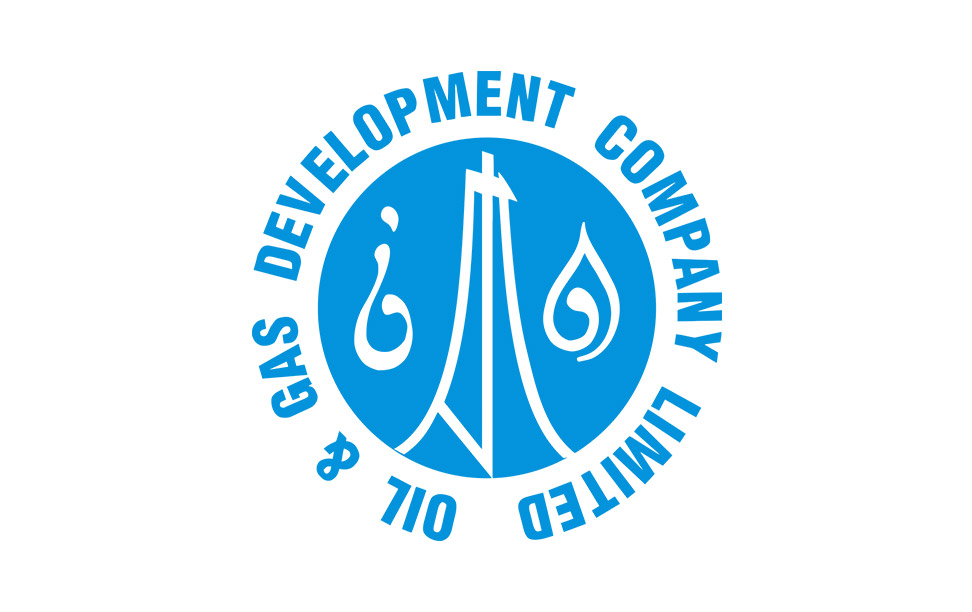December 13, 2023 (MLN): Fitch Ratings has affirmed Pakistan's Long-Term Foreign-Currency Issuer Default Rating (IDR) at 'CCC', according to the latest rating report from the credit rating agency.
The key rating drivers that led to the affirmation of the rating are:
External Risks Easing; Still High
The 'CCC' rating reflects high external funding risks amid high medium-term financing requirements, despite some stabilisation and Pakistan's strong performance on its current Stand-by Arrangement (SBA) with the IMF.
Fitch expects elections to take place as scheduled in February and a follow-up IMF programme to be negotiated quickly after the SBA finishes in March 2024, but there is still the risk of delays and uncertainty around Pakistan's ability to do this.
The elections could endanger the durability of recent reforms and leave room for renewed political volatility.
Successful IMF Review
In November, Pakistan and the IMF reached a staff-level agreement (SLA) on the first review of the country's nine-month SBA, which was approved by the IMF Executive Board in July 2023.
The entity expects board approval of the recent SLA to be unproblematic. The successful programme review reflects continued fiscal consolidation, energy price reforms in the face of a public backlash, and moves towards a more market-determined exchange rate regime.
Many of Pakistan's policy commitments under the SBA had been frontloaded, but Pakistan's caretaker government, which took office in August, has also taken new measures, including sharp hikes to natural gas and electricity prices and a crackdown on the black market, helping narrow the gap between the parallel (kerb) and interbank exchange rates and bringing more FX into the banking system.
In June, the previous government amended its proposed FY24 budget to introduce new revenue measures and cut spending, following additional tax measures and subsidy reforms in February.
Policy Implementation Risks
Parties across the political spectrum in Pakistan have an extensive record of failing to implement or reverse reforms agreed with the IMF.
Fitch sees a risk that the current consensus within Pakistan on the measures necessary to ensure continued funding could dissipate quickly once economic and external conditions improve, although Pakistan now has fewer financing options than in the past.
Any follow-up IMF programme would likely require Pakistan to undertake sweeping structural reforms in opposition to entrenched vested interests.
Challenging Politics
The credit rating agency foresees general elections to take place as scheduled in February, and to produce a coalition government along the lines of Shahbaz Sharif's government.
Former prime minister Imran Khan's Pakistan Tehreek-e-Insaf party likely remains popular, but its electoral prospects may be limited by Khan's imprisonment and the departure of senior leaders.
Space for political expression has shrunk since widespread protests in May 2023. Nevertheless, further delays to elections or renewed political volatility cannot be excluded and would jeopardise IMF negotiations and external funding.
Funding Trickling In
The IMF disbursed $1.2 billion in July, and $700 million will follow after approval of the recent SLA, leaving $1.1bn to be disbursed after a review scheduled in March 2024.
Saudi Arabia provided $2bn in new deposits, and the UAE provided $1 billion.
The government also received over $500 million in project and commodity financing in the first quarter of the fiscal year ending June 2024 (FY24).
A further $1.1 billion in programme loans and over $500m in project loans appear likely in the remainder of 2023.
Overall Funding Targets Ambitious
The authorities expect total gross new external financing of $18bn in FY24, against nearly $9bn in government debt maturities.
The maturing debt includes a $1bn bond due in April and $3.8bn to multilateral creditors but excludes routine rollovers of bilateral deposits.
At the end of September, maturities in the remaining three-quarters of FY24 were just over $7bn. The government funding target includes $1.5bn in Eurobond/sukuk issuance and $4.5bn in commercial bank borrowing, which will likely prove challenging.
Narrower External Deficit
The entity forecasts a current account deficit (CAD) of about $2bn (below 1% of GDP) in FY24, in line with FY23. Contractionary fiscal policies, lower commodity prices and limited FX availability have driven the sharp narrowing of Pakistan's CAD from over $17bn in FY22.
Tight financing conditions, rupee depreciation and weak domestic demand will likely continue to constrain the CAD.
The authorities intend for imports to be financed through banks, limiting the drain on official reserves, but banks have resorted to ad hoc, informal measures to prioritize access to FX by clients.
Reserves Have Recovered; Still Low
Pakistan's FX reserves have recovered on inflows of new funding and limited CADs, and we expect further increases.
Official gross reserves, including gold, were $12.7bn in October 2023 (about three months of imports), up from about $8bn at the start of 2023, but well below the peak of $23bn at end-2021.
The central bank's net liquid FX reserves have been hovering at just over $7bn since October 2023 (about two months of imports), from a low of about $3bn in January. A contraction in imports helped reserve coverage ratios.
Fiscal Deficits Remain Wide
Fitch expects the consolidated general government (GG) fiscal deficit to narrow to 6.8% of GDP in FY24, from an estimated 7.8% in FY23, driven by an improvement in the primary balance to a surplus of 0.3% of GDP, from a primary deficit of 0.8% of GDP in FY23.
The fiscal balance is benefitting from inflation, new revenue measures, as well as discipline on tax exemptions, subsidies and other spending, including at the provincial level. However, further fiscal consolidation will be increasingly challenging.
High, Stable Debt Level
GG debt/GDP was about 75% of GDP in FY23, broadly in line with the median for 'B', 'C' and 'D' rating category sovereigns. P
akistan's debt dynamics are stable owing to high nominal growth over the medium term, with high inflation offsetting the pressure from high domestic interest costs.
Nevertheless, debt/revenue (over 650%) and interest/revenue (about 60%) are far worse than that of peers, largely due to very low revenue/GDP.
ESG – Governance
Pakistan has an ESG Relevance Score (RS) of '5' for both political stability and rights and for the rule of law, institutional and regulatory quality and control of corruption, as is the case for all sovereigns.
These scores reflect the high weight that the World Bank Governance Indicators (WBGI) have in our proprietary Sovereign Rating Model (SRM). Pakistan has a WBGI ranking at the 22nd percentile.
Factors that Could, Individually or Collectively, Lead to Negative Rating Action/Downgrade include:
Public Finances
Increasing likelihood of default, for example, renewed deterioration in external liquidity conditions that could result from delays in IMF disbursements, or indications that the authorities are considering debt restructuring.
Factors that Could, Individually or Collectively, Lead to Positive Rating Action/Upgrade
Greater certainty on the continued availability of funding over the medium term, for example, in the context of a longer-term IMF programme.
External Finances
Rebuilding of foreign-currency reserves and further significant easing of external financing risks.
Country Ceiling
The Country Ceiling for Pakistan is 'B-'. For sovereigns rated 'CCC+' or below, Fitch assumes a starting point of 'CCC+' for determining the Country Ceiling.
Fitch's Country Ceiling Model produced a starting point uplift of 0 notches. Fitch's rating committee applied a +1 notch qualitative adjustment to this, under the Balance of Payments Restrictions pillar, reflecting that the private sector has not been prevented or significantly impeded from converting local currency into foreign currency and transferring the proceeds to non-resident creditors to service debt payments.
Fitch does not assign Country Ceilings below 'CCC+', and only assigns a Country Ceiling of 'CCC+' in the event that transfer and convertibility risk has materialized and is impacting the vast majority of economic sectors and asset classes.
ESG Considerations
Pakistan has an ESG Relevance Score of '5' for political stability and rights, as WBGIs have the highest weight in Fitch's SRM and are therefore highly relevant to the rating and a key rating driver with a high weight.
As Pakistan has a percentile rank below 50 for the respective governance indicator, this has a negative impact on the credit profile.
Pakistan has an ESG Relevance Score of '5' for rule of law, institutional & regulatory quality and control of corruption, as WBGIs have the highest weight in Fitch's SRM and are therefore highly relevant to the rating and are a key rating driver with a high weight.
As Pakistan has a percentile rank below 50 for the respective governance indicators, this has a negative impact on the credit profile.
Pakistan has an ESG Relevance Score of '4' for human rights and political freedoms, as the voice and accountability pillar of the WBGIs is relevant to the rating and a rating driver.
As Pakistan has a percentile rank below 50 for the respective governance indicator, this has a negative impact on the credit profile.
Pakistan has an ESG Relevance Score of '4' for creditor rights, as willingness to service and repay debt is relevant to the rating and is a rating driver for Pakistan, as for all sovereigns.
As Pakistan participated in the Debt Service Suspension Initiative in 2020, this has a negative impact on the credit profile.
The highest level of ESG credit relevance is a score of '3', unless otherwise disclosed in this section.
A score of '3' means ESG issues are credit-neutral or have only a minimal credit impact on the entity, either due to their nature or the way in which they are being managed by the entity.
Fitch's ESG Relevance Scores are not inputs in the rating process; they are an observation on the relevance and materiality of ESG factors in the rating decision
Copyright Mettis Link News
Posted on: 2023-12-13T15:49:52+05:00







